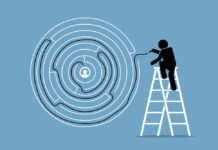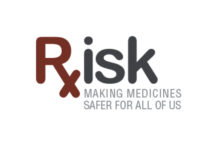A Massachusetts Benzo Bill That Mandates Informed Consent
H. 3594 would require pharmacists to distribute pamphlets containing information on benzodiazepine misuse and abuse, risk of dependency and addiction, handling and addiction treatment resources. This would be a major legislative response to the prescribing patterns for these drugs today.
Online Experts on Withdrawal
Online communities are stepping in to help people facing withdrawal effects amass information and receive support for their withdrawal experiences.
Envisioning Psychiatric Drug Freedom
Psychiatric meds can shut down the emotions and consciousness enough to make it possible to tolerate dynamics that would inspire rage or surges of empowered activity without the meds. It can be helpful to look closely at these blocks and start to create a map to freedom, understanding that it is a complex process that involves not only the physiology of the body of the individual taking meds, but the architecture of the social system around that person.
Mental Health Survival Kit, Chapter 4: Withdrawing from Psychiatric Drugs (Part 5)
Withdraw from psychiatric drugs at your own speed—according to what you feel. Don’t reduce again before you feel stabilised on the previous dose.
Mental Health Survival Kit, Chapter 4: Withdrawing from Psychiatric Drugs (Part 1)
Very few doctors know anything about withdrawal and make horrible mistakes. If they taper at all, they do it far too quickly because the few guidelines that exist recommend far too quick tapering.
Current Anti-Stigma Campaigns Hinder Withdrawal from Psychotropic Medication
Anti-stigma campaigns reinforce a belief that people with mental health issues must have treatment and thus, push discussion of withdrawal and negative aspects of psychiatric drugs into anonymous spaces.
Long-Term Antipsychotics: Making Sense of the Evidence in the Light of the Dutch Follow-Up...
In the 1950s, when the drugs we now call ‘antipsychotics’ first came along, psychiatrists recognised that they were toxic substances that happened to have the ability to suppress thoughts and emotions without simply putting people to sleep in the way the old sedatives did. The mental restriction the drugs produced was noted to be part of a general state of physical and mental inhibition that at extremes resembled Parkinson’s disease. Early psychiatrists didn’t doubt that this state of neurological suppression was potentially damaging to the brain.
Now Antidepressant-Induced Chronic Depression Has a Name: Tardive Dysphoria
Three recently published papers, along with a report by a Minnesota group on health outcomes in that state, provide new reason to mull over...
Helping People Come Off Medication—Bad for Business?
The message in journal editorials, comments and opinion articles, is that 'this new study shows great promise' and that 'we need further research'. My interpretation is: 'give us the money and we will be happy to carry this out'. With the implied promise that, once this new research has been done, we will get a better world. Sadly this is rarely ever the case.
Mental Health Survival Kit, Chapter 4: Withdrawing from Psychiatric Drugs (Part 6)
Peter Gøtzsche gives advice on what withdrawal symptoms may look like and explains the dangers of—and alternatives to—forced treatment.
Antidepressants and Pregnancy: Who Says They Are Safe?
Depression during pregnancy is an important issue. Depression should not be ignored and depressed pregnant women deserve good treatment and care. Part of that good care, though, is providing them with full and correct information. I care for pregnant women taking antidepressants on a daily basis and too often they tell me that the only counseling they received about the medication was, “my doctor told me it’s safe in pregnancy.” This post will review the evidence in this area and address the counterarguments.
Mental Health Survival Kit, Chapter 4: Withdrawing from Psychiatric Drugs (Part 4)
Psychiatrists have made hundreds of millions of people dependent on psychiatric drugs and yet have done virtually nothing to find out how to help the patients come off them again.
Coming Out: Iatrogenic Illness Awareness Month
Our main reason for beginning an awareness month is the need for recognition-- a yearning to make the word “iatrogenic” and its corresponding language available to our community, and to the greater public as a household name. We don’t have the luxury of raising money for research, racing for the cure, or ribbons. For that we would have to be on the map. Why is it that something this pervasive gets so little traction?
Components for a Good Neuroleptic Withdrawal Program
The United States desperately needs good programs to help people withdraw from neuroleptic drugs. From all I have seen and heard, there aren’t any - none at least that can reputably claim to get good results on a fairly consistent basis. Again and again I find myself challenged to envision such a program, and in reply to the challenge I have broken down this hypothetical program into various components.
The Real Benzo Hysteria
On June 12th, Psychology Today published an article entitled, "Benzo Hysteria: the Chilling Effects of the 'Addictive' label," by Ed Shorter, PhD. A dangerous and unfounded claim was made in its final paragraph, which reads as follows: "The benzos are among the safest and most effective drug classes in the history of psychopharmacology." Benzodiazepines are in fact highly addictive and many people suffer for years from protracted withdrawal syndromes that are disabling.
Cold Turkey
The other day I talked to a friend who I hadn’t seen for quite a while. She told me that she had been prescribed Seroquel for sleep problems about a year ago. But when she started to read about it a couple months ago she got really nervous that it was causing her long term health complications and she stopped taking it - cold turkey - without tapering. I wondered about our conversation afterwards and thought about the countless amount of people who don’t tolerate their psychiatric meds and quit cold turkey.
Benzodiazepine Use and Risk of Alzheimer’s Disease
If a person in mid-life is feeling anxious, or depressed, or can't sleep? No problem. No need to figure out the source of these concerns. No need to work towards solutions in the old time-honored way of our ancestors. Today, psychiatrists have pills. Pop a benzo! And by the way, you'll have a 40% increased risk of Alzheimer's Disease in your late sixties.
Consent and Psychiatry: Problematizing the Problematic
It is rare to get involved in a dialogue over psychiatry without sooner or later someone defending the use of such “treatments” as ECT “as long as they are consented to,” with the term “informed consent” periodically employed. Herein lies the context for this piece. The issue that I want to probe, to be clear, is not whether force should be used—for of course it shouldn’t—but the thorny issue of consent itself—what exactly constitutes consent and what other issues besides consent are critical to factor in when considering what it is and is not legitimate for a “medical” professional to offer.
What You Need to Know Before Starting a Drug for a Mental Health Problem
In a belated new-year blog, I thought it would be useful to set out what I think someone needs to think about if they are considering taking a drug for a mental health problem, especially if they think they might end up taking the drug for a long time. These are the questions you might want to ask your doctor if you take a ‘drug-centred’ approach to the use of drugs in mental health.
The Taper
Part of what has scared me straight about ever starting a patient on an antidepressant (or antipsychotic or mood stabilizer) again is bearing witness to the incredible havoc that medication discontinuation can wreak. I am half way through the first e-course of its kind (on withdrawing from psych meds), and it has been incredibly well-received. There are so many people out there, disenfranchised by psychiatry, skeptical of its promises, and who want a better way, a more thoughtful assessment of them as whole persons. We seem to be onto something here, so let’s keep the dialogue flowing, keep our eyes wide open, and reform what psychiatry means, one patient at a time.
It Gets Better: Neuropsych Doctor Confirms Psych Drug Iatrogenesis, PTSD, Brain Injury
To those who are still suffering, it gets better. Indeed, I do not consider myself ill anymore. I consider myself HEALING, which is a vibrant state of movement and change. My limitations do not mean that I am sick. Learning to make boundaries for my well-being has been one of the healthiest things I’ve learned to do. Deeply respecting the needs of this body/temple is one of the most wonderful achievements of WELLNESS.
Antidepressants and Preterm Birth: More Concerning Findings
An important new research paper was published this week on the topic of antidepressant use during pregnancy and preterm birth. The issue is a crucial one as preterm birth (i.e. birth at less than 37 weeks gestational age) is one of the most challenging problems facing the obstetrical community today. Rates of preterm birth have been increasing over the past two decades. Babies born early have increased risks of morbidity and mortality. At the same time, rates of antidepressant use during pregnancy have increased dramatically.
RxISK Stories: Withdrawal from antidepressants – V’s story
I quit taking Prozac using a step-down method. Started in Sept. 2011 and finally off in January 2012. I experienced severe loss of balance early on, which progressed into full-blown ataxia & parasthesia. Have had extensive blood-testing & MRIs of brain & cervical spine, all negative! I have to believe this is a result of coming off Prozac, although most sites say the withdrawal side effects don't last this long.
Out of my Mind. Driven to Drink.
This is an article written by a woman named Anne-Marie. I am publishing it here because it epitomizes what RxISK.org, a company I have founded, is all about. It tells of one woman extraordinarily getting to grips with a problem she has on treatment. My hope is that when RxISK.org is up and running we will be able to make it easier for people like Anne-Marie to engage with their doctors to solve problems like this.
Tardive Dyskinesia in the Atypicals Era: Is The Risk Any Less Today Than Before?
A few weeks ago, while I was at a birthday celebration, a friend who works in a mental health setting remarked that she was...






















